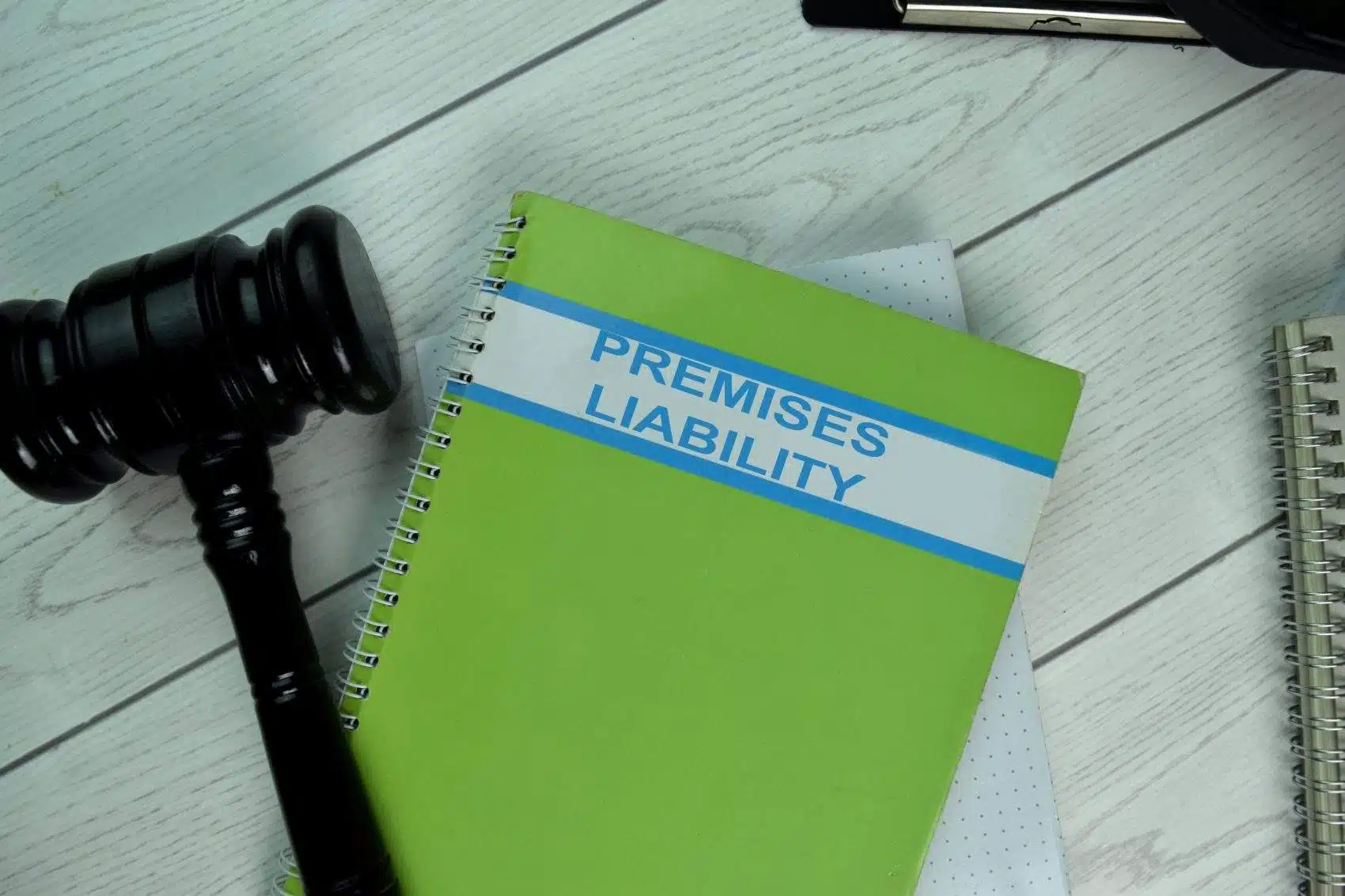As a property owner, you have certain legal responsibilities to ensure the safety of visitors to the property, depending on what type of visitor they are. The highest standard of responsibility is to your tenants and their invited guests. Your duty is to properly maintain the property, repair any potential hazard risks, and warn residents of potential dangers. Failure to adhere to these duties may be considered negligence, and any resulting injury or death may get you caught up in a lawsuit. That’s where your premises liability coverage comes into play.
Even uninvited guests such as a trespasser or squatter in a vacant home can be a liability risk to you as the property owner, so it is important that you be sure you know what is covered by your premises liability and are comfortable with your coverage limits.
Imagine a tenant notifying you of some broken stairs at their rental and you fail to take care of the necessary repairs. The tenant falls on the broken step a few days later, injuring themselves. They can file suit against you, the landlord, for bodily injury. Your tenant’s dog bites a passerby out for a walk on your property – the injured party can sue you for their medical expenses since the incident happened on your property. A more scary example – unbeknownst to you, one of your gas appliances is leaking Carbon Monoxide into your rental home causing your tenant to die from the poisoning. As the owner, you can be sued by the tenant’s family for wrongful death.
In these types of situations, you would file a claim with your premises liability carrier. You will want to be sure your premises liability coverage includes the following:
- Payment of damages you are legally obligated to pay because of bodily injury or property damage (to which the insurance applies) up to the policy limits and which occurs within the policy period
- Defense costs such as counsel, court fees, and judgments – ideally these costs are outside of the liability limits so as to not diminish the amount that could apply to any damages.
- Medical expenses for the injured party.
- Coverage for carbon monoxide pollution
- A sublimit for canine liability – to protect you in case of damages caused by a dog on your property
If you are insured with NREIG, these are all included in your liability coverage, whereas many traditional dwelling policies contain a Total Pollution Exclusion (including carbon monoxide), and may exclude many dog breeds considered “vicious” (or no canine coverage at all). NREIG’s program has no breed exclusion.
Our limits of liability also start at $1 million per occurrence with a $2 million aggregate per policy period PER location. This means that for a single covered liability incident, the coverage will pay up to $1 million PLUS, your legal defense costs. We also have higher limits available – $1 million per occurrence and $5 million annual aggregate, as well as an option at $2 million per occurrence and $5 million aggregate. Be aware that many dwelling policies offer just a $300,000 limit of liability.
What isn’t covered by premises liability?
Coverage for injuries and accidental death does not extend to anyone you hire to be on-site. This may include a property manager, handyperson, or general contractor. Additionally, if your tenant is completing any maintenance work at your property in exchange for decreased rent, any incident that occurs in the course of that work is not covered. Moreover, you do not want your premises liability coverage to be responsible for any injuries to or claims a tenant or visitor that are caused by those you hire.
This is where you need to be careful about who you hire to be on the property. You should be sure your Property Manager carries adequate Professional Liability including both General Liability (for day-to-day business practices) and Errors & Omissions (E&O) coverage. A handyperson or contractor should be properly licensed to perform the services for which you hired them and should carry General Contractors Liability. If any of these partners have employees, they should also carry Workers’ Compensation in case an employee is injured on the job. They may also consider Employment Practices Liability Insurance (EPLI) to cover claims by their employees for wrongful termination, failure to promote, or discrimination.
You should have your PM and contractor(s) list you as an Additional Insured on their liability policies for the time that you employ them. This will serve two purposes. First, it will ensure that you are notified if their policy cancels for any reason, and more importantly, extend coverage to you for a liability incident on your property that is a result of their negligence.
Here is a scenario for this situation. Your general contractor leaves a ladder on the property during a job. A kid playing in the neighborhood runs across the property, trips over the ladder, and hits their head. The child’s family can sue you for damages as the incident occurred on your property. If all parties are insured properly, your Premises Liability will extend defense duties to you, but as the GC is the negligent party, their liability policy would ultimately be responsible for settling the injury loss.
Or perhaps your property manager fails to fix those broken stairs we mentioned earlier. You would want their Errors & Omissions coverage to step in rather than your premises liability.
Other Liability coverage considerations
If you do not hire a property manager and perform those management duties yourself, then you might consider Errors & Omissions coverage. Premises liability may not cover you for your negligence in performing property management activities – including tenant discrimination. NREIG recently launched a Property Management E&O offering for this hard-to-find coverage.
Additionally, if your premises liability limits are not sufficient to give you peace of mind, you might consider an umbrella liability policy to extend those limits. An umbrella may also be considered as your portfolio grows larger and your business grows to provide additional protection. Be sure you understand what an umbrella is and isn’t and discuss with your agent whether this is a good fit for you.
Liability insurance can be complicated, so be sure you discuss your coverage with your agent. Be sure your agent is aware of the occupancy status and any work being done at all of your locations to be sure you are properly insured. One of the best ways to mitigate liability losses is to be sure you are keeping up with property maintenance, communicating regularly with your tenants, and properly vetting anyone you hire as part of your investment journey.






